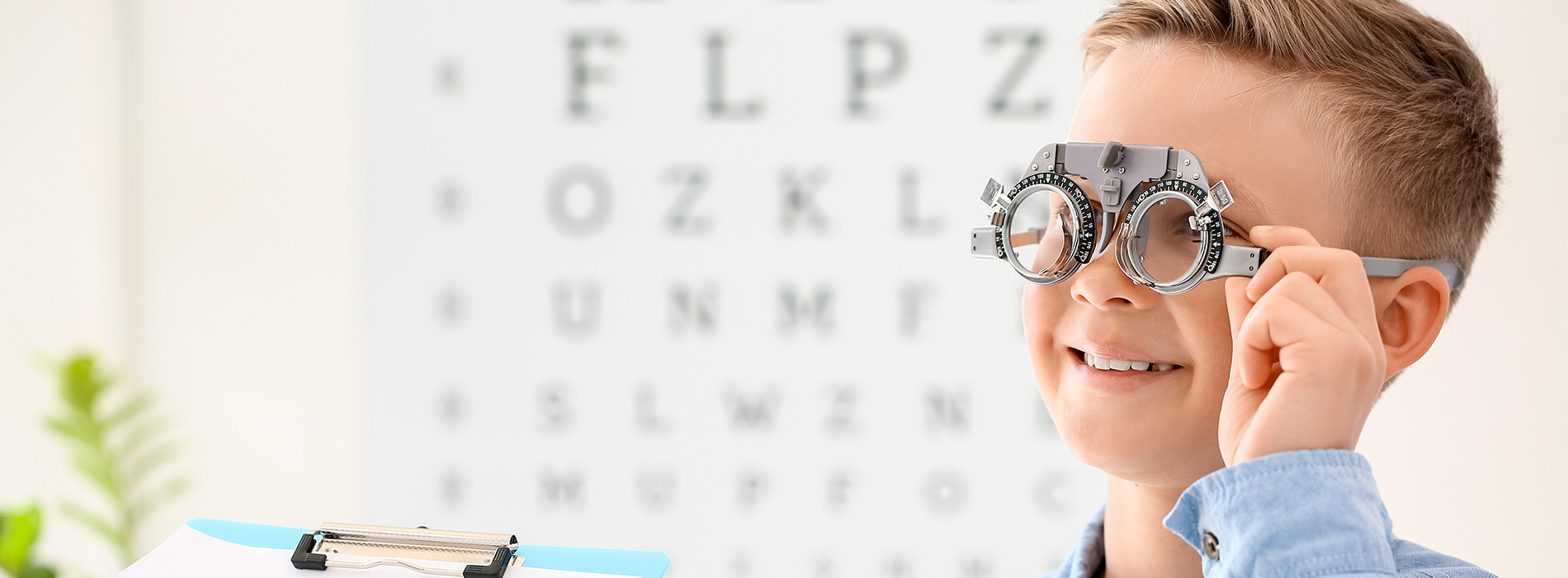New Patients
Existing Patients
New Patients
Existing Patients
New Patients
Existing Patients
New Patients
Existing Patients
New Patients
Existing Patients
New Patients
Existing Patients
New Patients
Existing Patients
New Patients
Existing Patients

Myopia, commonly known as nearsightedness, is a progressive vision condition that typically begins in childhood and causes distant objects to appear blurry.It occurs when the eyeball grows too long from front to back (called axial elongation), causing light to focus in front of the retina instead of directly on it.
Myopia Control is a crucial, proactive approach designed to slow down this progression and reduce the final degree of nearsightedness a child reaches.While traditional single-vision glasses and contacts only correct the blur, they do not address the underlying issue of continued eye growth.Our goal with Myopia Control is to minimize the final prescription, which is an important step in protecting your child's long-term eye health.
Controlling the elongation of the eyeball is about more than just reducing dependency on strong corrective lenses; it’s about preserving the health of the eye.As the eye grows longer, the internal, delicate structures—such as the retina and optic nerve—are stretched and thinned.
Lowering the final amount of myopia significantly reduces the lifetime risk of serious, sight-threatening complications in adulthood, including:
Retinal Detachment
Glaucoma
Cataracts
Myopic Maculopathy (damage to the central retina)
By starting intervention early, we are not just correcting vision—we are making an investment in your child's future eye health and quality of life.
We offer evidence-based, customized treatment plans following a thorough comprehensive eye exam and assessment of your child’s lifestyle.The most effective options work by altering how light is focused on the peripheral retina, signaling the eye to slow its growth. Treatment categories include:
Specialized Soft Contact Lenses: These daily-wear lenses use a unique dual-focus or extended depth-of-focus design to correct central vision while creating a therapeutic focus in the periphery to slow progression.
Orthokeratology (Ortho-K): Custom-designed rigid contact lenses worn only overnight.They gently and temporarily reshape the cornea while your child sleeps, providing clear, spectacle-free vision during the day while also slowing axial elongation.
Myopia Control Spectacle Lenses: Newer lens technologies that use multiple segments or lenslets across the lens surface to slow progression while providing clear vision through the center.
Low-Dose Atropine Eye Drops: A compounded prescription eye drop, typically administered once daily at bedtime, that has been shown to effectively slow the progression of myopia by relaxing the eye's focusing mechanism.
We will discuss lifestyle recommendations that can help slow progression and delay the onset of myopia, including:
Increased Outdoor Time: Spending at least 90 minutes outdoors daily, especially in natural light, is beneficial.
Near-Work Breaks: Encouraging frequent breaks from close-up activities like reading or screen time, following the 20-20-20 Rule (every 20 minutes, look at something 20 feet away for 20 seconds).
If your child’s nearsightedness prescription is increasing yearly, or if they were diagnosed with myopia at a young age, they are an excellent candidate for Myopia Control. The best results are achieved with early intervention, ideally when myopia is first detected.
We invite you to book a comprehensive eye exam today at one of our convenient locations to assess your child’s vision, discuss their specific risk factors, and determine the optimal personalized strategy for their long-term eye health.

Quick Links
Contact Us